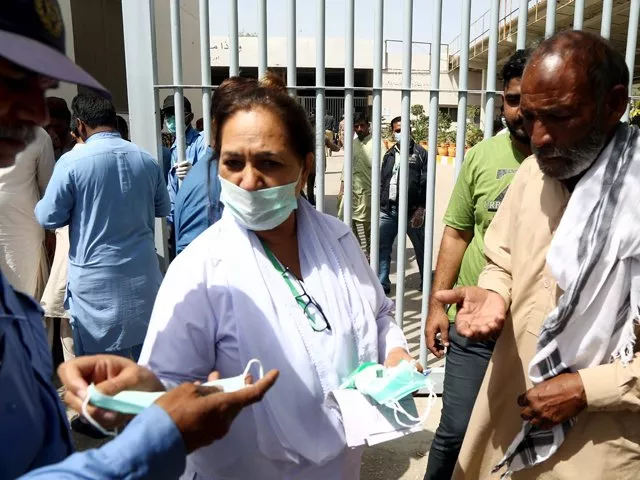Time to give up the Fund’s austerity plan
The world is already being forced to face the prospect of a profound shift to a self-sufficient economy
Considering the anticipated recession that is bound to follow the Covid-19 impacted national economy, we need to get the IMF to let us abandon the Fund’s $6 billion three-year austerity plan. Bring back Asad Umar to renegotiate the Extended Fund Facility.Next, we need to try to spend our way out of the on-coming recession phase launching as many construction projects as possible. This would surely double the already double-digit inflation rate.
But, since in the process enough spending money would enter circulation triggering demand unlocking the closed manufacturing capacities, unblocking supply-lines would bring prices, including electricity and gas bills down. Simultaneously, the domestic oil prices are expected to decline to reasonable levels in response to the world oil price collapse thus sending the rate of inflation racing down to 5-6%, creating needed space for the SBP to reduce the interest rate by as much. This in turn would turn the wheels of the national economy faster, expanding the GDP at an estimated rate of 5-6%, which would hopefully enhance the government’s revenue manifold.
With the increase in revenue incomes the government would perhaps be in a better position to allocate a larger budget for the BISP to take care of at least three times the population that is now being covered by the programme, which would considerably improve the lot of the 25% of the most destitute in the population.
Professional economists, especially belonging to Milton Friedman’s school of thought, would certainly call these moves an economic absurdity.
But consider this: Pakistan is a market of over 200 million. We can produce for this market and keep a strict watch on the supply and demand equation and become self-sufficient in many manufactured products.
Indeed, due to the global devastation wrecked by Covid-19, the world is already being forced to face the prospect of a profound shift to a self-sufficient economy.
Meanwhile, according to one estimate, if the government reduces petrol prices by Rs30 and diesel by Rs40, it would be passing a bailout package of Rs700 billion to the people without losing any oil-related revenues. Add to this the savings in interest payment due to massive reduction in interest rates. This would total up the bailout amount to over Rs1.5 trillion.
The IMF is already contemplating making available $1 trillion for member countries facing Covid-19. Pakistan is aiming to get a slice of $1.4 billion from this allocation. And according to an official statement, the World Bank would provide $238 million and the ADB $350 million to Pakistan in support for the Covid-19 emergency response. The US has also announced an initial aid of $1 million to Pakistan to help it combat the outbreak.
The IMF has also assured Pakistan that any additional budget allocation for meeting the threat of Covid-19 would not be counted as part of the fiscal deficit.
Meanwhile, self-sufficiency efforts aimed at expanding domestic capacities to develop various tools and items to meet the immediate requirements for fighting the pandemic, the Pakistan Against COVID19-Volunteers (PAC-V) is using 3D printing to manufacture necessary medical equipment, including ventilators, respiratory valves and splitter for connecting one vent to four patients. The group is also developing non-contact thermometers, hazmat suits, facemasks and face shields (Pakistani Volunteers 3D-print Ventilators, Joins War against Covid-19, published in The Express Tribune).
The first 3D ventilator prototype is expected to be ready for testing soon. The PAF is said to have already offered to field-test the splitter. Lab test for non-contact thermometer is said to have been done and it has now been sent to the Punjab Health Department for field testing. The hazmat suit is currently in the field testing phase.
The NDMA, Pakistan Engineering Council, PAF and various universities are said to have shown interest in the group’s initiatives.
Published in The Express Tribune, March 28th, 2020.
Like Opinion & Editorial on Facebook, follow @ETOpEd on Twitter to receive all updates on all our daily pieces.


COMMENTS
Comments are moderated and generally will be posted if they are on-topic and not abusive.
For more information, please see our Comments FAQ